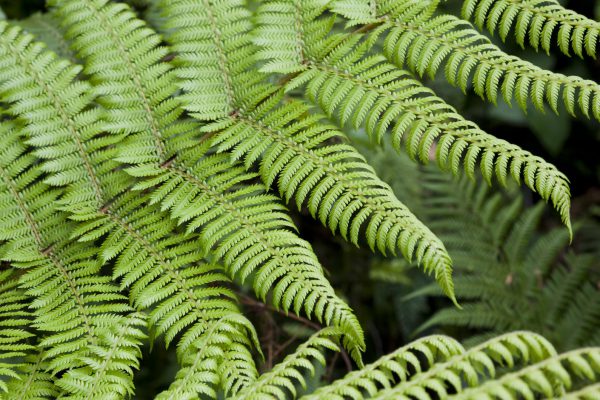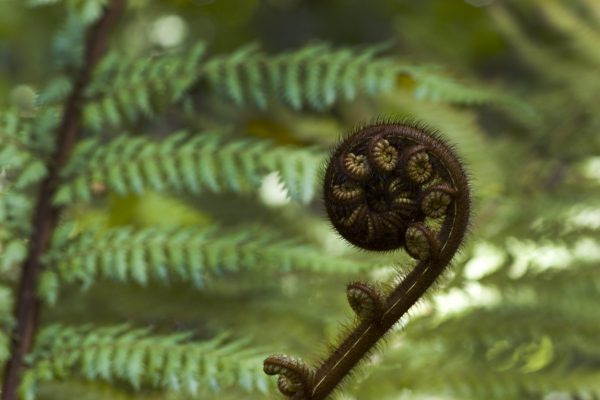Te ao Māori
-
Whakapapa
Whakapapa is the glue that strengthens our sense of belonging. Participants shared how their sense of belonging is rooted in their whakapapa - by knowing their ancestors' relationships with the land, rivers and mountains. Participants spoke about how knowing their whakapapa tied them closely with their whānau and their environment and also increased their knowledge of te ao Māori.
When I place two feet on my papa kainga and realize that my tipuna walked this same land, swam in this same river and climbed the same mountain. It is very important that we as Tuhoe people have our connection to the land and therefore is the connection to the people. The connection is like the umbilical cord. Severed and we will be destined to fail.
-
When I place two feet on my papa kainga and realize that my tipuna walked this same land, swam in this same river and climbed the same mountain. It is very important that we as Tuhoe people have our connection to the land and therefore is the connection to the people. The connection is like the umbilical cord. Severed and we will be destined to fail.
-
My pepeha says where I belong. That’s my identity. I have a Māori background. My Pākehā background goes back to England.
-
I feel like I belong especially in my Māori culture and family and with people who understand our culture. My family were all raised Māori, we understand the dynamics of the whanau it is not about me, it is about whanau. If I do prayers or cultural ceremonies we understand the dynamic and understand what we do. Prayers it is not about the words it is about wairoa – it is not just about words it is more than that. When I am with my family, I feel like I belong.
-
I believe strongly in whakapapa. My whakapapa is my identity, but also my relationship with physical elements. Papatuanuku and Tangaroa. I have an obligation to look after waterways, etc. to look after whakapapa through looking after land, no throwing rubbish out the window in my world. Have to look after the environment. That’s how I’ve raised my children as well.
-
-
Whanaungatanga
Whanaungatanga is the interwoven connections through relationships past and present that link us to each other on a number of levels. Participants shared examples of whanaungatanga in te ao Māori that foster and strengthen belonging, for example, the roles that individuals play on a marae to create a strong community. For participants, the valuing of people through the roles present on the marae, and being a part of the marae made them feel a greater sense of belonging.
Everyone who is on that marae is important, nothing can run smoothly if others are left out or don’t have a purpose for being there. Whether you are the kaikaranga [kuia who calls people onto the marae] or the kaikorero [the kaumatua who speak at the powhiri], you’re nothing if there are not the cooks, so they are just as important. That’s how that system works really well. They don’t bring anything; they just bring a potato peeler. You bring value.
-
Everyone who is on that marae is important, nothing can run smoothly if others are left out or don’t have a purpose for being there. Whether you are the kaikaranga [kuia who calls people onto the marae] or the kaikorero [the kaumatua who speak at the powhiri], you’re nothing if there are not the cooks, so they are just as important. That’s how that system works really well. They don’t bring anything; they just bring a potato peeler. You bring value.
-
As a mum, with my daughter, I had taken a trip [to Māori community/marae up north] with my [baby] daughter, and had all this [baby] stuff, and every time I needed to get something, like putting the carseat in, suddenly there’s a big guy putting the seat in for me. It was Caring. They Wrapped around me. It was the first time I felt cared for, that I was being looked after as a mother with my daughter, it gave me a sense of belonging. Manaakitanga - belonging and connection and care - those concepts didn’t exist for me growing up.
-
We always try to give to a person to help fill the need that they have. A lot of the people who come have mental health challenges, and getting them the support is a really important part of our marae. They just NEED a person to talk to.
-
There’s something about the heart connection. If there’s anywhere I feel more comfortable it’s in a marae setting.
-
But it’s the people I connect with. There was a network I was embraced into, and [xx]. Been connected to the Māori college for a long time. Moving back to an area who were strongly Māori. Had 2 staff members that were Māori and educated me. Had some good educators and support around me, in being culturally safe.
-
At (Name) Marae the people are very welcoming. You can be in the space and be whanau, I like the way they care for their visitors. For me having a bespoke culture.
-
Similar stuff to pick up on. Felt particular feelings of belonging, really satisfying when I’m with other activists. Being at a blockade at a conference. A really special time is being together for a few days, like at a marae. You’ve got all that togetherness; you’re open with people. Those kinds of experiences are really meaningful. Things like that, I felt like a feeling of belonging.
-
Also, manaakitanga, that is another obligation because of the way I was raised by the old people. Sharing, caring, giving aroha to others is a responsibility of mine. It is my role to manaaki all, young, old, all colours and races. We’re all human. No one is different. I have so much manaakitanga and aroha [that I give out], that you forget that you can be in receipt of that as well. In the last few weeks, it’s humbling to be on the receiving end of all of that. It’s payback. That’s the result of my manaakitanga to others.
-
-
Whānau
Whānau or a strong sense of whānau creates immediate connection and belonging to and for people. When participants shared about the concept of whānau, other participants resonated with similar experiences. Participants also talked about how whānau strengthened the idea of community rather than isolated individuals. Participants recognised the connection of whānau within their own cultures and communities, and how it provided them with a strong sense of belonging
[I feel belonging] When I’m with Māori whānau and friends, because there is a sense of shared historical experience. For example, we have parents who were beaten [at school] for speaking te reo.
-
[I feel belonging] When I’m with Māori whānau and friends, because there is a sense of shared historical experience. For example, we have parents who were beaten [at school] for speaking te reo.
-
I feel like I belong especially in my Māori culture and family and with people who understand our culture. My family were all raised Māori, we understand the dynamics of the whanau it is not about me, it is about whanau. If I do prayers or cultural ceremonies we understand the dynamic and understand what we do. Prayers it is not about the words it is about wairoa – it is not just about words it is more than that. When I am with my family, I feel like I belong.
-
When I went to school, I never got an opportunity to sit school cert. Mum could only afford to pay for 1 of the kids to sit cert. So we picked my [one] sister. She went to school and got school cert. We hung it [cert] on the wall. that sister got the cert for all of us. It belongs to all of us.
-
Knowing your whanau, speaking te reo.
-
Being disconnected from a marae growing up, when I’m visiting our marae in Rotorua helps me connect. My uncle there feeds me a lot [of knowledge].
-
Being on the marae is like going to work everyday. I’m really fortunate, really lucky. I get calls from people who say “I don’t know anything about my marae, I only know my grandmother is from Maniapoto”. I’m thankful for my parents giving that to me, because those people feel heartbroken because they don’t know their whakapapa and who their family is.
-
I feel like I belong in NZ, but I just hadn’t embraced that Māori side. So nice to be in it with my brothers. My uncles and aunties have very much been raised in te reo. They’re loving us getting to know them better. Amazing journey of connecting to those things that are familiar to us and part of us. [We’re connecting] to extended family as well.
-
We went back up to our marae up there, had 2 reunions in the last three years. [We use a] social media platform to connect. Amazing journey of connecting and meeting our whanau. All the other cousins too, all first cousins, some of whom we hadn’t met before. We made a decision to break down the walls, get to know each other, spend 5 days together.
-
For me I’ve always had a great sense of belonging with my whanau.
-
Always think in my whanau, whenever I’m with them, a marae, wherever.
-
I’ve seen the love his daughter gets. Whanau, this is the root of faith, love, people, unity. We need to be in our waka together.
-
Each of these souls sitting in front of you belong. We have our nannies and our grannies, and our tipuna. And if we whakapapa to Adam and Eve, we belong.
-





